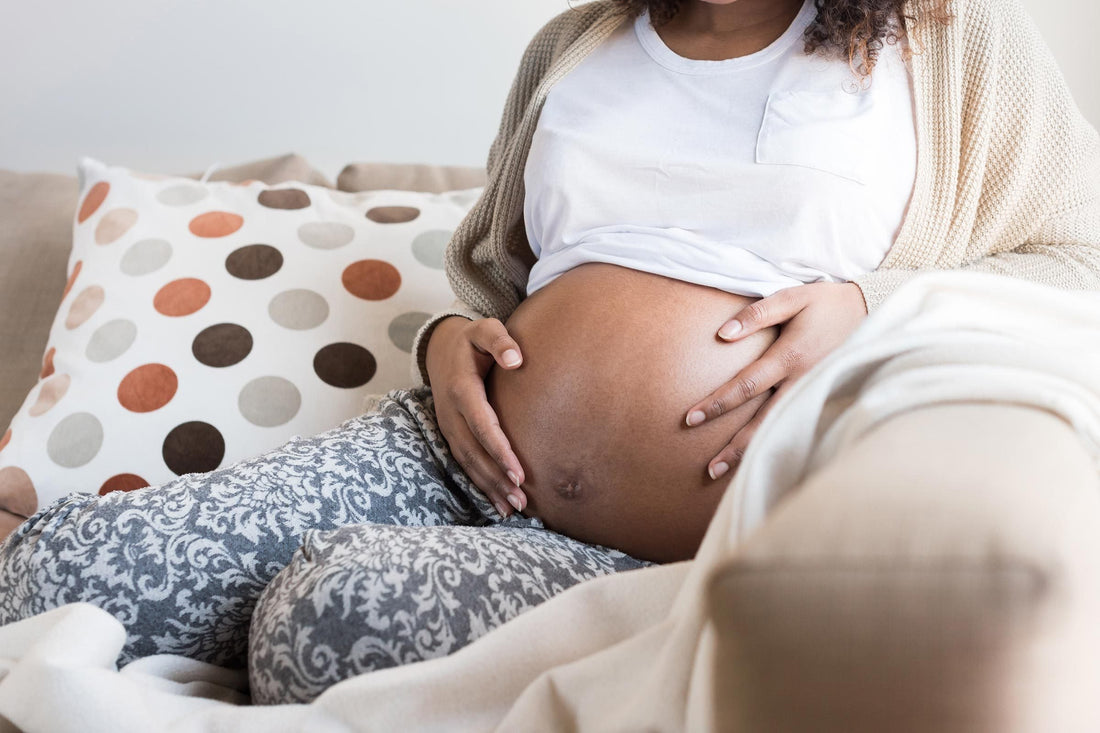
Is it safe to use heat packs during pregnancy?
Pregnancy can be a pain, and when you have a little one on board it's not always a great idea to take painkillers, so what are your other options?
Mums-to-be are often advised to avoid hot tubs, saunas and steam baths, which may make some wary about localised heat application. These warnings can be scary, as these environments have been inked to birth defects, premature delivery and miscarriage, especially in first trimester. You don't have to be concerned, however, about localised heat application, and in fact, heat packs and pads are often advised for use by doctors as a safe and effective pain relief method during pregnancy. Products which apply heat to only a certain area of your body will not raise your core temperature enough to be of any harm to your little one.
Using all-in-one heat or ice packs like Hug are common methods of treating muscle and join pain. Both methods are non invasive and not addictive. In general, recurring pain like the aching back, hips, or joints you may experience as your pregnancy progresses should be treated with heat.
Here's a comment by Susannah Osbourne from madeformums.com on this hot topic:
Heat therapy opens blood vessels, increasing blood flow and bringing fresh supplies of oxygen and nutrients. This helps reduce joint pain and eases soreness in muscles, tendons, and ligaments. The warmth from a heat pack can also increase your range of motion while decreasing muscle spasms. Overall, it’s a good way to find pain relief during pregnancy.
You may also want to try a heatpack (like our Hug heatpack!) that can also be used cold, to help with headaches, morning sickness and swelling, or even recovery and post-birth or C section.
Here's a little advice for using Hug while pregnant:
- Wear or apply Hug on top of a layer of clothing
- Try to keep heat application to 20 minute sessions
- Use your Hug at the lowest temperature that you gain benefit from, and keep an eye on the colour changing temperature indicator on the front to ensure you are using it at a safe temperature.
- Avoid falling asleep whilst using your Hug.
Causes of pain during pregnancy are:
- Rising hormone levels: Your body prepares for delivery with the release of hormones that help your ligaments soften and your joints loosen. As a result, your back may not be as well-supported. That can be uncomfortable and/or painful.
- Shifting centre of gravity: As your uterus expands to accommodate your growing baby, your centre of gravity changes. Your posture may follow suit.
- Increased weight: As the numbers on the scale tick upward, your back has more weight to support.
- Compromised posture: Adjusting to your new shape can lead to poor posture. Things like sitting or standing for too long, or even bending over, can worsen a sore back and hips.
- Muscle cramps can be very common for some women, can appear quickly and be particularly painful. About half of pregnant women can experience these spasms, and can even occur in back, abdomen, hands and feet!
What to look out for:
Of course, if you suffer unusual levels of pain, especially on the left or right of your abdomen during your early weeks and before you have had a scan you should speak to a health professional as this could be a sign of ectopic pregnancy.
After your scan, some women feel period type pains or tugging and pulling around their pelvis and the bottom of their stomach. This can be caused by your womb stretching and growing with your pregnancy. This is a great time to use your Warm Hug around the affected areas. You can also try paracetamol tablets.
Pain in your stomach or pelvis when you try to pass urine, passing urine more often or struggling to pass urine may be a sign that you have a urine infection. Ring your GP to be seen that day, or to speak about any pain concerns you may have during pregnancy.
